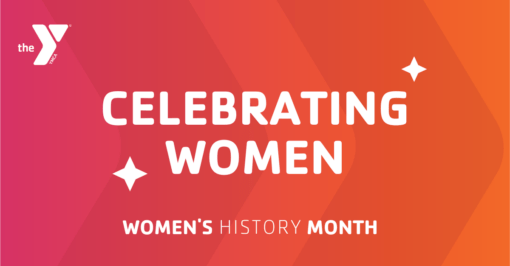Commemorating the Accomplishments of Women Leaders Within the Y Movement
In honor of Women’s History Month, the Y is honored to commemorate and celebrate female figures within the history of the YMCA movement who were vital to the success and empowerment of all current and future women leaders in the Y.
Ellen Brown: Ellen Brown was the first female YMCA employee in 1886 when she was hired to serve as the “boys work secretary.” Brown taught a night class at the Y that grew so rapidly, it eventually became a whole department!
Addie Hunton: As part of the YMCA’s massive World War, I support effort, Addie Hunton was one of only three African American women assigned to serve over 200,000 segregated Black troops stationed in France. Hunton was also YWCA secretary for Black student work and vice president of the NAACP.
Marguerite Cockett: Marguerite Cockett graduated from Women’s Medical College of Pennsylvania in 1905. In 1916 she bought a car and brought it to France where she worked as an ambulance driver under the American Fund for French Wounded. She spent three months in Serbia establishing a French-Serbian hospital and served on a hospital ship in the Mediterranean. In 1917 she established the first canteen under the YMCA American Expeditionary Forces.
Wilhelmina “Willie” Aveling: Wilhelmina “Willie” Aveling began her YMCA career as a physical director in Atlantic City. In 1933, she joined the staff of the Chicago Metropolitan YMCA to find ways to improve programs for women and girls. For the next 28 years, she helped develop policies and recruit women leaders within the YMCA movement. She was the first woman to be inducted into the YMCA National Hall of Fame.
Winifred Colton: Fighting to improve the status of women in the YMCA, Winifred Colton began her extensive YMCA career as women’s and girls’ work secretary at the YMCA of Metro Chicago. In 1957, the YMCA’s National Council’s statement of purpose no longer applied to “males only,” and Colton became the first woman professional on the national staff.
Violet P. Henry: After holding various executive leadership roles in the Newark and Chicago YMCAs, in 1976, Violet P. Henry became the first woman to be named to a top management position at the Y’s national office. She provided leadership for numerous national and international commissions and committees that worked for the rights of women and people of color.
Xinia Brenes Jenkins: One of the founding members of the San Jose YMCA, Xinia Brenes Jenkins was deeply involved in the Costa Rican Catholic youth movement. The Latin American Confederation of YMCAs reached out to Jenkins for her assistance in instituting a national Costa Rican YMCA. Jenkins’s work for the Costa Rican YMCA focused on providing programs for refugees, relief for those affected by housing shortages, and offering vocational skills training for women and agricultural skills training for Costa Rican natives.
Suzanne McCormick: In 2021, Suzanne McCormick became the first woman to serve as President and CEO of YMCA of the USA. A 30-year nonprofit executive, Suzanne is a sought-after speaker and thought leader in the nonprofit and social impact sectors. In her role, she serves as an inspiration and symbol of what’s possible for future women leaders, including the millions of girls and young women who engage with the Y as members, participants, staff and volunteers.

Indiana State Museum Honors Six Female History Makers with Hoosier Ties:
Catharine Coffin
Catharine Coffin – wife of Levi Coffin, who was considered “president of Underground Railroad” – was just as dedicated to helping freedom seekers on their journeys as her husband was.
Learn more HERE!
Gene Stratton-Porter
Gene Stratton-Porter was a woman ahead of her time. She lived life exactly how she wanted to, even though societal norms deemed some things she did as scandalous – such as living apart from her husband, having her own money, wearing pants, and going into the Limberlost Swamp with men who helped her carry photography equipment.
Madam C.J. Walker – born Sarah Breedlove to sharecroppers on a Louisiana cotton plantation – was one of the first American women ever to become a self-made millionaire after creating her own specialized hair-care products for African Americans.
Learn more about Madam Walker here!
Blanche Culbertson
Blanche Culbertson – daughter of William Culbertson and his second wife, Cornelia – was raised in a family that stressed the virtues of benevolence, temperance, truthfulness and justice, as well as a spirit of activism.
Discover more about Blanche here!
Selma Neubacher Steele
Selma Neubacher Steele – the second wife of Hoosier artist T.C. Steele – was an educator, but she also was artist in her own right.
After marrying T.C. and moving to Brown County, Selma supported her husband’s work by transforming their property and creating gardens near their House of the Singing Winds that often inspired his plein air paintings. She also decorated their home with designs of her own, which can still be discovered during a tour of T.C. Steele State Historic Site near Nashville.
Judge Zilthia Mae Perkins Jimison
Judge Zilthia Mae Perkins Jimison became the first African American female judge on the Marion Superior Court after being appointed by Republican Gov. Robert D. Orr in 1988.
